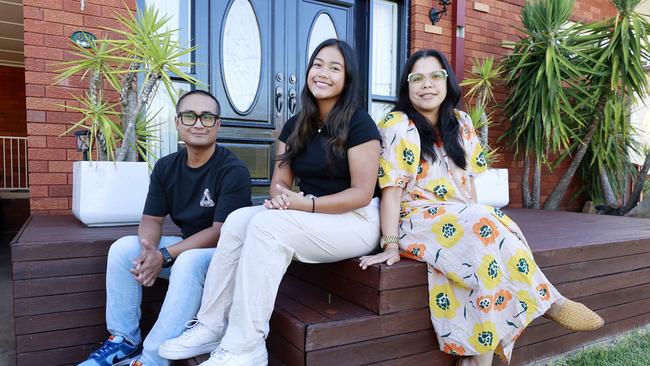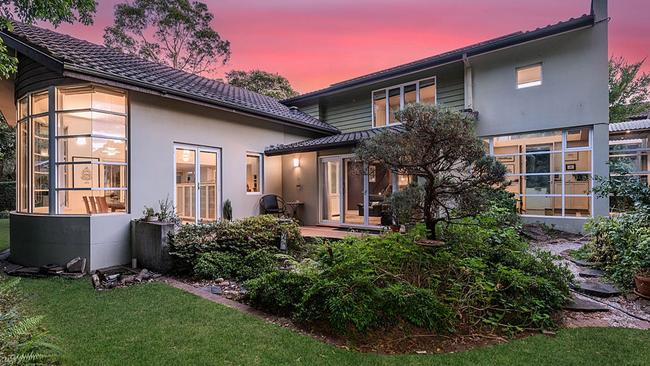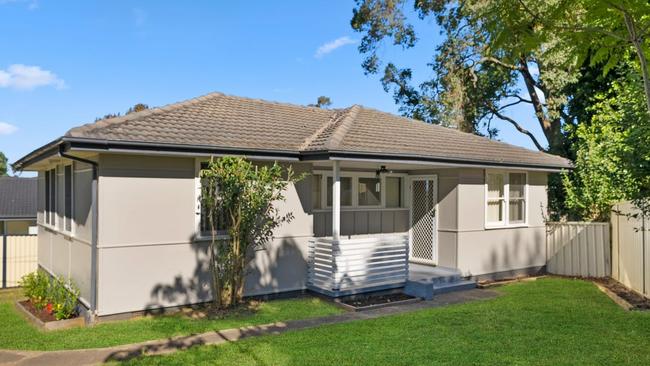Revealed: income you now need to buy average Sydney house due to rising rates
A Sydneysider simply buying an average property will need to earn a truly staggering income to get a loan due to recent interest rate hikes. See what income you need in your suburb.
Property
Don't miss out on the headlines from Property. Followed categories will be added to My News.
Home seekers would need to earn nearly $250,000 a year to afford the purchase of an average Sydney house if the Reserve Bank of Australia pulls the trigger on even a small rate rise next week.
Alarming mortgage analysis has revealed even the widely expected 0.25 per cent rise to the cash rate, if passed in full by banks, would sink lower income buyers’ last hopes of buying a house.
It would mean even those buying a house in the city’s cheapest suburb – Tregear in the Mount Druitt area of Western Sydney – would need to earn at least $125,000 a year to afford the purchase at new, adjusted interest rates.
The analysis by comparison site Finder.com.au assumed the buyer paid the median price, had a 20 per cent deposit and was not pumping more than a third of their income into repayments, meaning they were avoiding “mortgage stress”.
It also assumed the buyer was getting the average variable home loan rate, which would increase from 5.97 per cent currently to 6.22 per cent if the cash rate rose by 0.25 per cent next week.

With inflation rampant and reaching a 30-year-high in the December quarter, economists said another rate rise in February was all but a certainty and a 0.25 per cent rise remains the market expectation.
The average cost of a Sydney house is nearly $1.25m, according to PropTrack. To afford a mortgage at that price with new rates, a buyer would need about $246,000 in earnings a year, a $250,000 deposit and $53,000 for stamp duty.
A purchase at the same price would have required an income of about $178,000 a year ago when interest rates were at record lows. Under current rates, the income requirement is about $238,000.
The average gross income of households in NSW was about $126,000 a year, according to the latest ABS study.
“Buying a home in Sydney for many people is now something that requires an extraordinary amount of planning, research and sacrifice,” said Finder Home Loans expert Richard Whitten.
“The long-term implications are that Sydney is increasingly becoming a city divided between those who bought a home and those who haven’t yet; between established homeowners and permanent renters.”
Sydney’s apartment market remains more accessible, but options were limited for lower income buyers.
Buying the average apartment in Wiley Park, Warwick Farm or Lakemba, the cheapest unit markets in the city, would require income of about $77,000 a year if rates crept up as expected next week.
These areas were among only 15 suburbs where unit prices were affordable for those earning below $90,000.
Purchasing a unit at the Greater Sydney median price – $760,000 – would require just under $150,000 annual income if rates went up again.
It’s likely this requirement will creep up as the year wears on given the expectation of even more interest rate rises as part of the RBA’s efforts to tame inflation.

AMP Capital chief economist Shane Oliver said it would be next to impossible for workers’ wages to keep up with the increasing loan costs.
“There is a high risk of more rate hikes and a likely slowdown in the economy, which could boost unemployment,” he said.
“That combination of higher rates and risk of recession or at least slower growth suggests people’s borrowing capacity won’t match prices. Borrowing capacity has already dropped 25 per cent over the last year.”
Mr Whitten said Sydney home prices would need to fall more – they’re down 7 per cent annually – for housing affordability to really improve.
Interest rates would also need to stabilise, he said. “Wage growth remains far below inflation, so we’re all spending more of what we earn.
“(Housing affordability) is an incredibly complex interplay between the cost of borrowing, the supply of housing, people’s income, and the treatment of housing as a commodity rather than a necessity.”

PropTrack economist Eleanor Creagh said prices would likely fall further in the coming months but major drops – of the kind that would dramatically improve affordability – were unlikely because there was little available housing supply.
This shortage was keeping a floor under property price falls as home seekers still had to face a fair level of competition for the properties they liked, Ms Creagh said.
Home buyers said finding a quality property was difficult in the current market – especially in cheaper suburbs where there was an influx of new buyers seeking value because of rising rates.
Agus and Mel Ramdhana have listed their current home for sale with McGrath-Blacktown agent Monique Layoun and are looking for a new property but said it was a struggle.
“There’s nothing that we like at the moment,” Ms Ramdhana said, adding she worried they’d let their old house go and “not be able to find anything else”.




